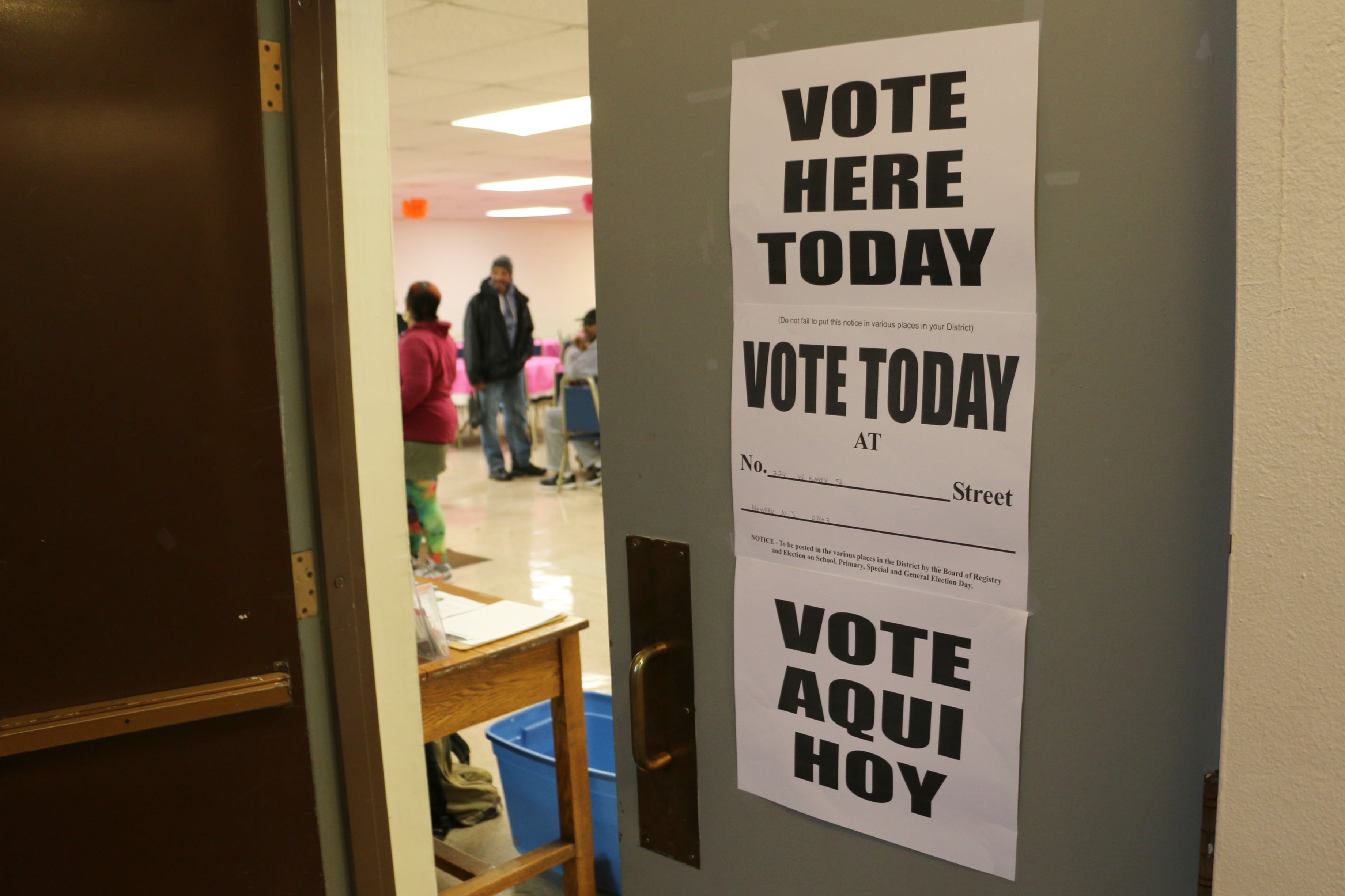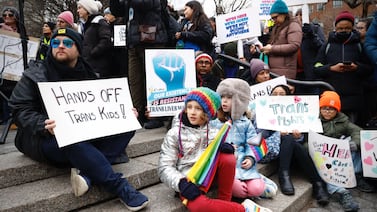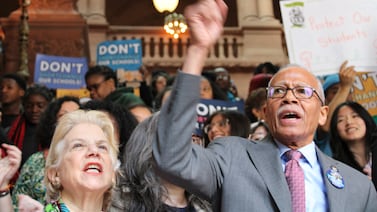Every week, Chalkbeat’s national team rounds up the news you need in our Wednesday newsletter. Today, we’re publishing a version of it here, too. Subscribe here for the latest on how the pandemic and the election are changing schools across the country.
So. We still don’t know who won the presidential election or which party will control the U.S. Senate.
What does that all mean for schools? In short, more uncertainty, after months and months of it.
The ambiguity means it’s hard to know what will happen to a potential new package of federal help for schools. Without that aid, schools in many parts of the country are likely to have to cut budgets in the years ahead. The outcome depends both on who controls the different parts of the federal government and how they do — or don’t — end up working together.
Also still unclear is whether Education Secretary Betsy DeVos will get the chance to remain in office or be replaced by a Joe Biden appointee, who is likely to make different decisions about civil rights enforcement in schools and will decide whether schools must give the usual standardized tests this year.
Other state and local education races we’re watching:
- Two education-related ballot initiatives in California are currently losing, but haven’t been called yet. One would increase school funding by raising commercial property taxes. The other would repeal a ban on affirmative action, including in public colleges and universities.
- Big-money school board races in Los Angeles are still too close to call. If current results hold, the board will be split between candidates backed by the teachers union and by charter advocates.
- An Arizona ballot initiative to raise taxes on high-income households in order to increase teacher pay is leading, but hasn’t been called yet.
- Washington state voters approved an initiative to require sex education in public schools.
- Colorado voters approved a nicotine tax to fund universal preschool. San Antonio and St. Louis voters also backed funding initiatives for pre-kindergarten.
- Control of the Indianapolis Public Schools board remains up in the air. Critics of the district’s collaboration with charter schools are looking to take control.
- And it appears that voters in Gary, Indiana approved a “do or die” referendum that would help the struggling school district dig itself out of debt, paving the way to end a state takeover.
What else you need to know about the discussion surrounding potential picks for education secretary
- If Biden ends up winning, a major education reform group is set to push Chicago, Baltimore, Philly schools chiefs for education secretary. Janice Jackson, Sonja Brookins Santelises, and William Hite are on Democrats for Education Reform’s short list, we reported yesterday.
- Meanwhile, the Washington Post reported other names that a Biden administration is likely to consider: AFT President Randi Weingarten, former NEA head Lily Eskelsen García, and California state board of education president Linda Darling-Hammond.
And some youth voices to get you through, as election night turns into election week
Ahead of Election Day, Chalkbeat spoke with students about why this election mattered to them. They told us how issues like the pandemic, police violence, and LGBTQ rights drove them to get involved and encourage family and friends who are able to vote.
Below is a selection of what they said. You can read more here.
In the past, if I’m being totally honest, elections have never been a priority for me. Looking back on it now, it does affect me. The majority of my friends are queer identified, so I’m taking that into account. Can I walk down the street without being called a slur? Can my friends choose the bathroom they want to use? If you go on TikTok or you go on Twitter or you go on Instagram, you see these comments. ‘You can’t even vote. Why do you care?’ We have to erase that notion. — Leonel Ramirez, 17
I was never interested in politics. During coronavirus, when we were in quarantine, when George Floyd [was killed], my school gave us a day off if you wanted to make a change or voice how you’re feeling. I wanted to be engaged in politics. There are always people saying: Oh these youths don’t do anything. I don’t want to be in that stereotype category. I wanted to get out of my comfort zone. Right now, I’m in the process of becoming a poll worker. — Kiara Green, 17
I came to the U.S. from Spain five years ago, so I’m a first-generation immigrant. I can’t personally vote. By being involved and spreading information, I can make my voice count and allow people to understand what’s happening. My family members, they barely speak English. Most of them speak Spanish. When my parents are watching the news, they’ll say: I saw this. And I have to explain. On Election Day, I’ll be trying to convince my family members who can vote to vote. — Michelle Del Villar, 18







